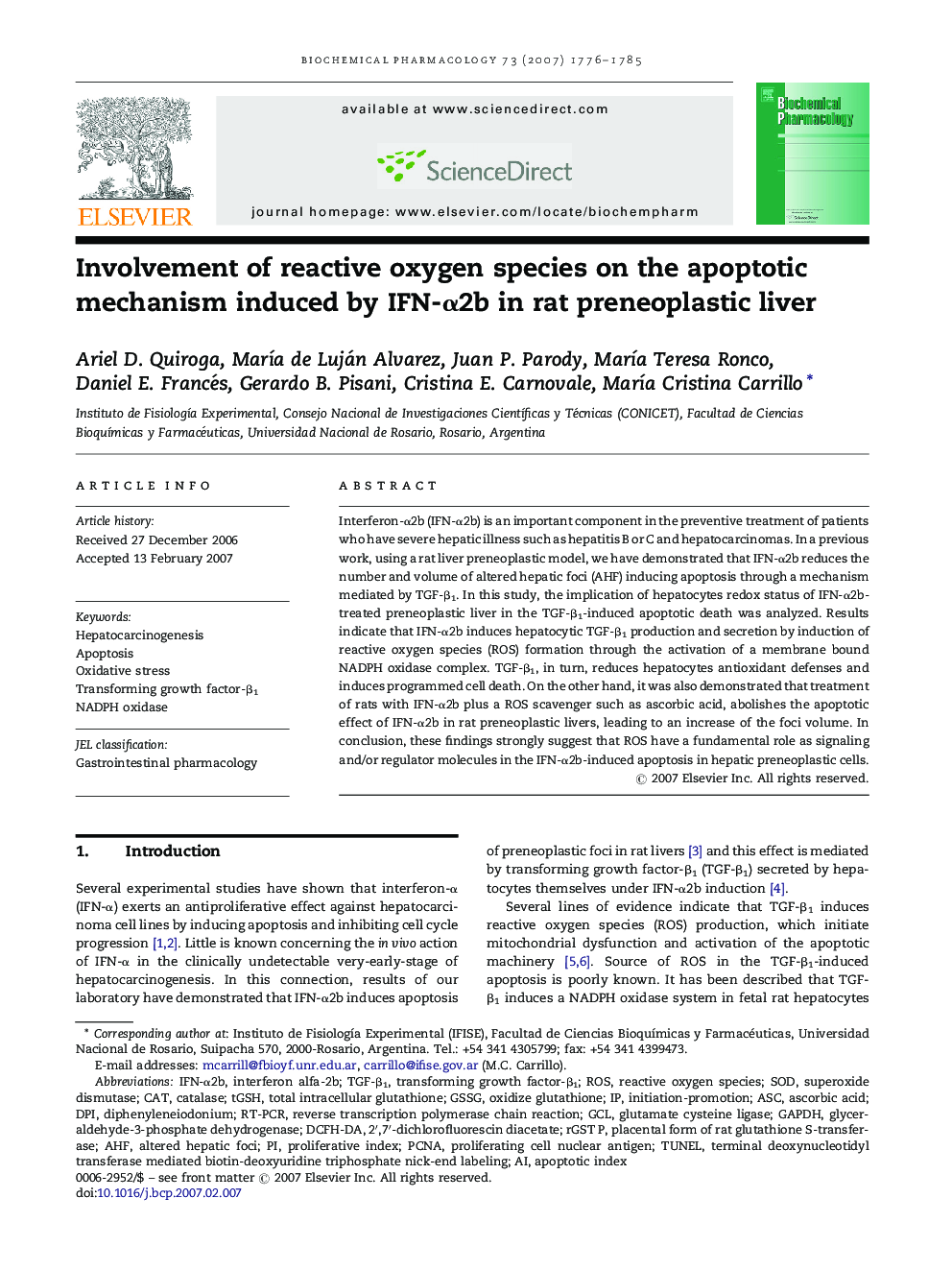| Article ID | Journal | Published Year | Pages | File Type |
|---|---|---|---|---|
| 2515606 | Biochemical Pharmacology | 2007 | 10 Pages |
Interferon-α2b (IFN-α2b) is an important component in the preventive treatment of patients who have severe hepatic illness such as hepatitis B or C and hepatocarcinomas. In a previous work, using a rat liver preneoplastic model, we have demonstrated that IFN-α2b reduces the number and volume of altered hepatic foci (AHF) inducing apoptosis through a mechanism mediated by TGF-β1. In this study, the implication of hepatocytes redox status of IFN-α2b-treated preneoplastic liver in the TGF-β1-induced apoptotic death was analyzed. Results indicate that IFN-α2b induces hepatocytic TGF-β1 production and secretion by induction of reactive oxygen species (ROS) formation through the activation of a membrane bound NADPH oxidase complex. TGF-β1, in turn, reduces hepatocytes antioxidant defenses and induces programmed cell death. On the other hand, it was also demonstrated that treatment of rats with IFN-α2b plus a ROS scavenger such as ascorbic acid, abolishes the apoptotic effect of IFN-α2b in rat preneoplastic livers, leading to an increase of the foci volume. In conclusion, these findings strongly suggest that ROS have a fundamental role as signaling and/or regulator molecules in the IFN-α2b-induced apoptosis in hepatic preneoplastic cells.
